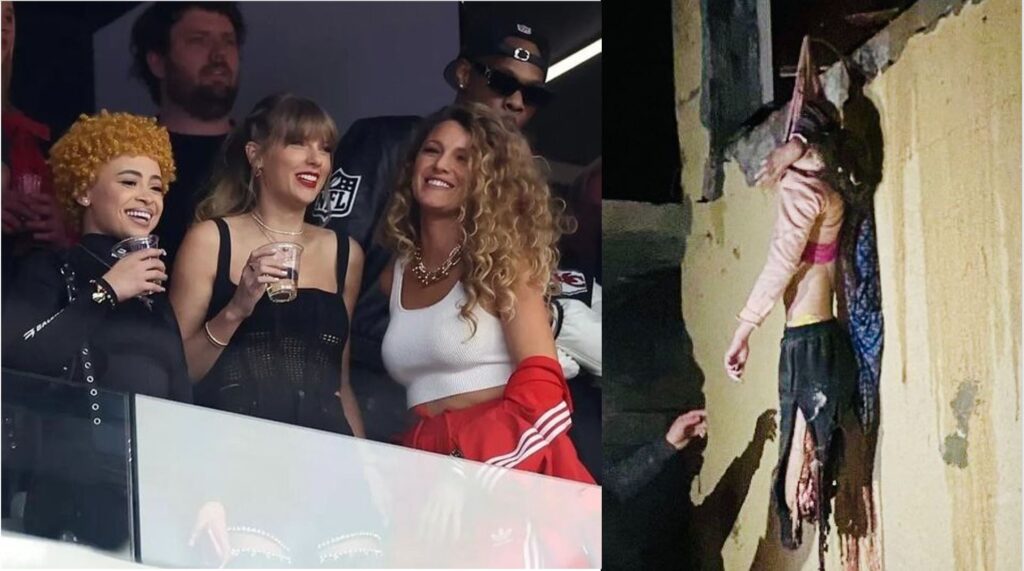
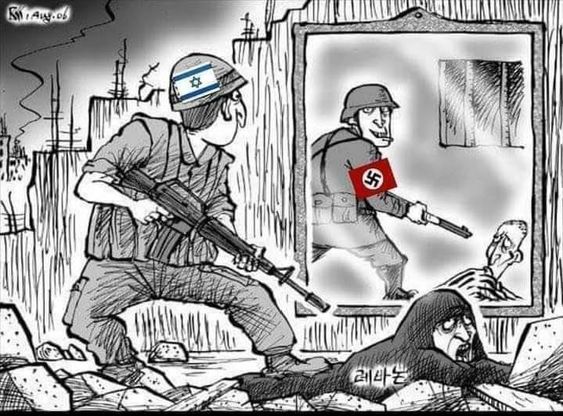
While 100M Americans were watching the Super Bowl 2024, their tax money was being used to fund Israeli air strikes that killed at least 100 Palestinians in southern Gaza’s Rafah pic.twitter.com/Jc4p7Cwzu0
— TRT World (@trtworld) February 12, 2024
You’re watching a segment about the brutal israeli assault on #Gaza as the Palestinian death toll mounts. The anchor mentions that they have a guest or analyst to discuss the loss of Palestinian civilian lives. Who are you expecting to see?
Well, definitely, not these! pic.twitter.com/VmkL1MgEur— Rania (@umyaznemo) February 7, 2024
Nazis: Said they were the master race
Zionists: Say they are the chosen raceNazis: Stole land and property from Jews
Zionists: Steal land and property from PalestiniansNazis: Starved Jews
Zionists: Starve PalestiniansNazis: Dehumanised Jews as rats/insects
Zionists: Dehumanise Palestinians as rats/insectsNazis: Ethnically cleansed land of Jews
Zionists: Ethnically cleansed land of PalestiniansNazis: Constant propagandists
Zionists: Constant propagandistsNazis: Asked Europe why nobody was taking the Jews they expelled
Zionists: Asking Arab nations why nobody will take Palestinians they wish to expelNazis: Said Jewish children are equally guilty
Zionists: Say Palestinian children are equally guiltyNazis: Committed genocide against Jews
@ecomarxi
Zionists: Accused of committing genocide against Palestinians
‘Trending’ when Musk tries to hide genocide and war crimes behind entertainment on behalf of the Zionists:
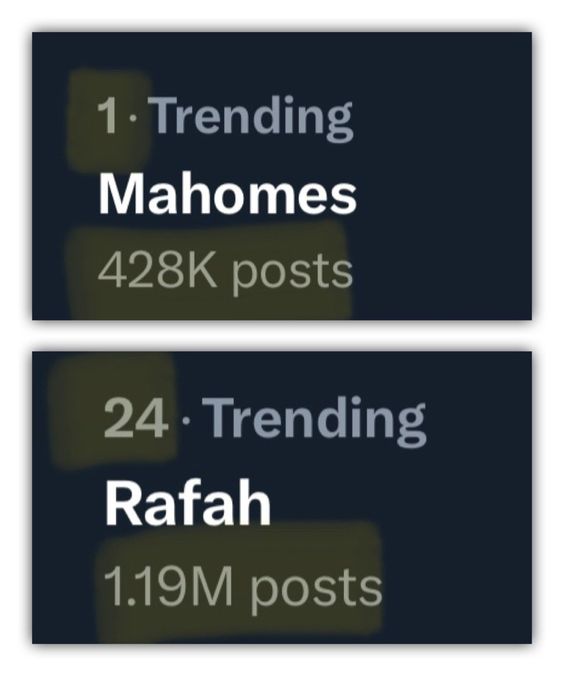
Hannah Arendt Prize:“Comparison is the way we know the world”
Read the talk that Masha Gessen gave at the ceremony of the Hannah Arendt Prize in Bremen.
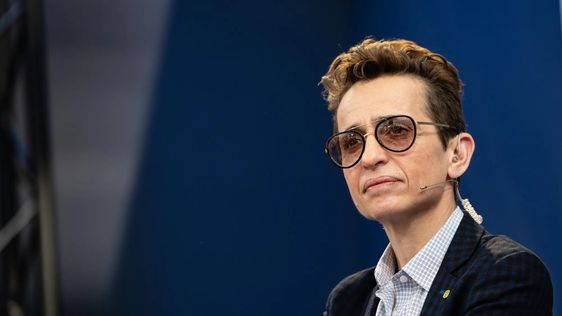
© Jens Schlueter/Getty Images
I’m going to talk about comparisons.
Why do we compare? We compare to learn. This is how we understand the world. A color is a color only among other colors. A shape is a shape only as it is distinct from other shapes. A feeling is a feeling only if you have experienced other feelings.
Comparison is the way we know the world. And yet we make rules about things that cannot be compared to each other. Take apples and oranges. Why wouldn’t you compare them? Both are fruit, both have sweetness, one is usually more sour than the other, one has an inedible part on the outside, the other an inedible part on the inside, both contain calories, nutrients and vitamins, albeit it different ones, and you can make juice out of either, but you need different kinds of machines for each. These seem to me useful ways of getting to know apples and oranges.
Not all comparisons are useful. I have often seen students – young writers – use metaphors, similes, and analogies in ways that obscure rather than clarify. Mostly this happens when they compare something ordinary, familiar – something we know – to something that’s harder to conjure. I often find myself writing comments to students, essentially asking them to compare only to things that are clearly imaginable.
The Western world and Germany in particular have invested a lot of time, effort, money, creative and political energy in imagining the Holocaust. We have language, images, statistics that are readily available for imagining the Holocaust. We have made it easy for one another to conjure up common images and even memories of the Holocaust.
And yet there is a rule – and it is certainly not unique to Germany – that you don’t compare things to the Holocaust. There is a paradox: we imagine the Holocaust in great detail, but we conceive of it as fundamentally unimaginable. It is the kind of evil that we cannot comprehend. But anything that happens in the present is, by definition, imaginable. We can see it. Even small children separated from their parents at the U.S. border and placed in detention are imaginable once we see pictures of them on our screens and hear their voices in audio recordings. So, when Representative Alexandria Ocasio Cortez in 2019 used the words “concentration camps” to describe migrant detention facilities, this comparison drew fire, among other reasons, because it placed the imaginable – a regular practice of the U.S. government – next to the unimaginable. Anything that is imaginable by the very fact of being seen, heard, witnessed, strikes us as being incomparable to the Holocaust.
Some of the phrases used to foreclose the possibility of comparing anything to the Holocaust are “Holocaust leveling,” “Holocaus relativizing,” and, paradoxically, also “Holocaust universalizing.” These phrases, which reaffirm the singularity of the Holocaust, have a relationship to the phrase “Never again.” I’ve been thinking a lot about this phrase, among other things because of the odd variant “Never again is now,” which I’m told makes as little sense in German as it does in English. It strikes me as a kind of magic spell. But “never again”is a political project. It is an aspiration – always – not the state of tings as they are. Perhaps this is why the “now” bugs me so much.
A political project is something that happens in the present, in the world, among people. Hannah Arendt spent her entire intellectual life thinking about what constitutes politics. To her, politics was a space in which we figured out how to live together in this world, a space of discussion and thinking and the creation of new possibilities. After the Holocaust, it’s a space in which we figure out how to live together in this world without repeating the Holocaust.
One of the structures that we have invented, acting politically, to prevent a repetition of the Holocaust is international humanitarian law, particularly the laws for the protection of civilians. It is also the framework of international jurisprudence, such as the International Criminal Court, war-crimes tribunals, and universal-jurisdiction trials. The concept of genocide, too, emerged as a result of the Holocaust.
The law generally works by comparing one thing to another. Is this case like that case? Every case has its individual details. One car that hit and killed a pedestrian was traveling in the exact opposite direction of another car, was a different make and color, and these things don’t make the two cases substantially different. Does it matter what the pedestrian was doing? If they were visible, jaywalking, staring at their phone? If they had previously insulted the driver? Killed the driver’s child?
I’ve spent much of the last two years reporting on the war in Ukraine and in particular on Russian war crimes in Ukraine. And I have seen how comparisons to the Holocaust, concepts that came out of reckoning with the Holocaust, have made their way into the speech not only of international lawyers but local detectives and ordinary people in places like Bucha. I see them constantly parsing out: what constitutes genocide? Is the forcible transfer of people to Russia a component of genocide? Does genocide require that the people carrying it out think of it as genocide? Does genocide require intent? Does it require articulated intent? We can’t think about these things without thinking about other genocides – and the genocide that precipitated the creation of these legal frameworks.
“We fail to think of historical events as developing over time”
So I think by now you understand that I didn’t stumble into the comparison of the Gaza Strip to a Jewish ghetto in Nazi-occupied Europe. Yesterday a reporter challenged me on this comparison by pointing out some differences: the Jewish ghettos were more densely populated than Gaza; people couldn’t leave the ghetto; and modern weapons couldn’t be smuggled into the ghetto, as they are into Gaza. This exchange reminded me of an off-color joke that I think exists in many cultures. A man offers a woman an astronomical amount of money for sex. She agrees to sleep with him – say, for 10 million dollars. “Will you sleep with me for 10 dollars?” he then asks. Outraged, she responds, “What do you think I am?” – “We already know what you are. We are just haggling over the price.” I wish I could find a joke that didn’t stigmatize sex work to illustrate this philosophical construction, which is that things can be substantively, essentially similar and differ in the specifics.
When I made this comparison between Gaza and the ghetto, I thought I was making an original contribution to a discourse dominated by the bad metaphor of an “open-air prison.” I have since learned that the comparison has a tradition that goes back at least twenty years. In June 2003, British politician Oona King wrote an article for The Guardian describing her trip to Israel Palestine. On her first day in the Gaza Strip, a helicopter attack killed a woman and her child and injured dozens more. King wrote, “The original founders of the Jewish state could surely not imagine the irony facing Israel today: in escaping the ashes of the Holocaust, they have incarcerated another people in a hell similar in its nature—though not its extent—to the Warsaw ghetto.” The comparison, of course, was controversial.
I’m not arguing that because other people have made the same comparison I have, I am right. What I am trying to do is add a time dimension to this conversation. What struck me about this comparison is that King made it three years before Israel imposed the siege regime on Gaza. And it was the time dimension that was also absent from the challenges that the reporter offered yesterday, when she talked about population density and the smuggling of weapons. The population of the ghettos changed over time (and weapons were indeed smuggled in).
But I’m not talking about a factual mistakes as much as I’m talking about a mistake we often make when thinking about history. We fail to think of historical events as developing over time. This has been an obsession for my entire writing life. I’ve always wanted to know about the life that happens between dates in a history book.
The Holocaust was singular in part because of how many people were killed over a short period of time. But even the Holocaust took years. People lived, had hopes, tried to make sense of what was happening, and resisted.
For my first narrative book, more than twenty years ago, I researched the Bialystok Ghetto, and in particular, the life and thinking of my greatgrandfather in this ghetto. It so happened that there was a fair amount of material: survivors had written memoirs; at least one young person had kept a journal throughout the existence of the ghetto; and a couple of survivors were still alive. My greatgrandfather was a leader of the Judenrat. He was well-known, and people mentioned him in their recollections. Early on in the existence of the ghetto, he tried to make life in it liveable, as did others he worked with. Food needed to be brought in. Waste had to be taken out. Safety needed to be maintained. Early on, in the name of safety, my greatgrandfather tried to stop young people in the ghetto from organizing a resistance. Closer to the end, in 1943, after the ghetto had been brutally and drastically reduced in physical size and population, my greatgrandfather was using the food trucks he was in charge of to bring weapons into the ghetto. These were used during the Bialistok ghetto uprising.
What changed? His political position changed. His imagination changed. At the beginning, he didn’t know what was going to happen. He didn’t know that the Holocaust was possible.
We do. We are not any smarter, kinder, wiser, or more moral than people who lived ninety years ago. We are just as likely to needlessly give up our political power and to remain willfully ignorant of darkness as it’s dawning. But we know something they didn’t know: we know that the Holocaust is possible.
Over the last few days, I have had lines from a novella by the Russian writer Valeria Narbikova, which I once translated, playing in my head. It’s a novella that is written as though the author were just learning to think, to recognize the world. Two recurrent phrases are: “If there is something, then what’s it like?” – a plea for a reference, a comparison – and another: “Something always precedes that which follows.” When we compare, we are also comparing contexts and histories, and making predictions. This is, of course, part of what makes Holocaust comparisons so fraught: they predict the worst. One important objection I have heard to comparing Gaza to the ghetto: but there are no death marches out of Gaza and no death camps waiting for its inhabitants.
And this is why we compare. To prevent what we know can happen from happening. To make “Never Again” a political project rather than a magic spell. And if we compare compellingly and bravely, then, in the best case scenario, the comparison is proven wrong.

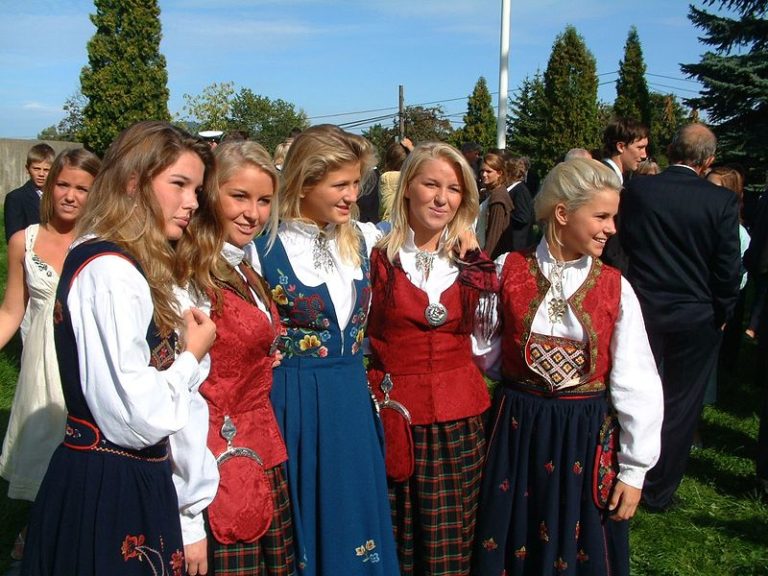
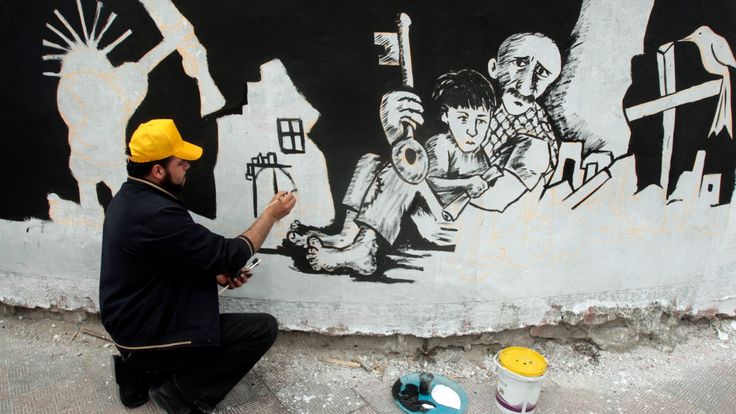
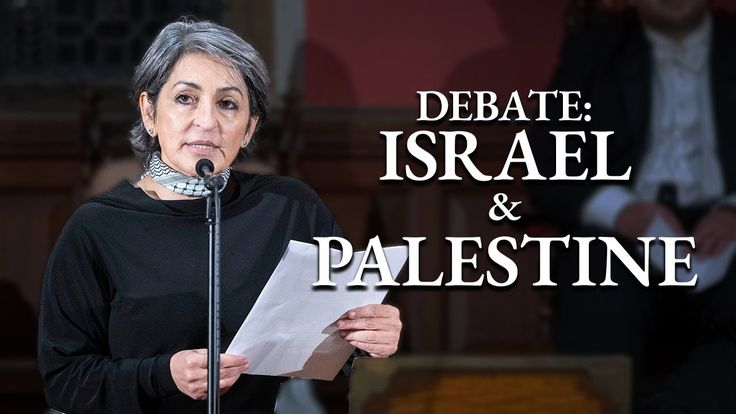
1 Comment
Pingback: Kendrick Lamar unleashed the Blackest Super Bowl Halftime Show ever in front of Donald Trump, a white supremacist president - Bergensia